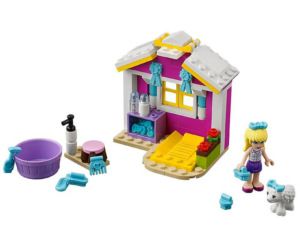Business
Lego putting pressure on US copycats
This article is more than 9 years old.
Competitors pulling look-alike toys from the shelves as Danish toy giant turns up the heat

Whatever you do, DO NOT copy anything in this picture (photo: Brickset)
Danish toy giant Lego has demonstrated that it is prepared to take legal action against US companies selling toys that look too similar to its popular ‘Lego Friends’ models.
At least three companies have settled with Lego and promised to stop selling toys that resembled Lego trademarks too closely.
“When someone pretends to be Lego, we intervene to tell them to stop abusing our brand,” Lego head Jørgen Vig Knudstorp told DR Nyheder.
Taking on giants
One of the companies Lego has locked horns with is Mega Bloks, which is owned by Mattel, the world’s largest toy company. There are characters in Mega Bloks’ ‘My Life As’ line that Lego says resembles its figures too closely.
Lego has also take the companies Best-Lock and LaRose to court for selling figurines that resemble characters in the ‘Lego Friends’ series.
‘Lego Friends’ is one of Lego’s most important product lines for decades. Armed with a marketing budget of just over 250 million kroner, it is one of the first Lego lines to appeal to young girls, making it particularly important to the Danish toy giant.
Monopoly?
Lego’s management first became aware of the copycat figures in 2014 and filed initial court proceedings. The company also filed an official complaint with the American trade protection organisation, the ITC, in February 2015.
Settlements with the three companies were reached last year. Lego worked to keep the proceedings quiet to avoid publicity.
US court documents show that Lego’s allegations of wrong-doing were met harshly by its competitors, who accused Lego of trying to monopolise the market and drive up prices.
“For years, Lego has tried to use its intellectual property rights to avoid participating in legitimate competition,” wrote Mega Bloks lawyers in one deposition. “Although they currently have over 80 percent of the construction toy market, they still aren’t satisfied.”
READ MORE: Lego wins court battle over figurine trademark
Lego has always been quick to defend its brand, and although the company’s patent on the classic Lego brick has long expired, the company fiercely defends the patents on its new product lines.










































